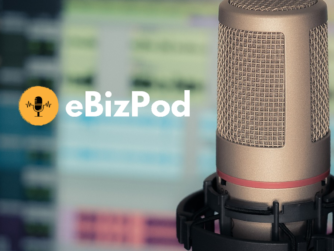Welcome to eBizPod. Today, we’re diving into an exciting topic that’s transforming the marketing landscape: the power of AI in marketing. If you’re curious about how artificial intelligence is changing the way businesses reach and engage with their customers, this video is for you. Let’s get started!
Segment 1: Introduction to AI in Marketing
Artificial intelligence, or AI, is no longer just a buzzword—it’s a game-changer in the world of marketing. From data analysis and customer insights to personalized experiences and automated campaigns, AI is revolutionizing the way we approach marketing. But what exactly is AI in marketing?
Visuals: Definition of AI, examples of AI technologies (machine learning, natural language processing, etc.)
In simple terms, AI in marketing refers to the use of intelligent algorithms and machine learning techniques to analyze data, predict outcomes, and automate decision-making processes. This allows marketers to create more effective strategies and deliver highly targeted content.
Segment 2: Data Analysis and Customer Insights
One of the most powerful applications of AI in marketing is data analysis. With AI, businesses can process vast amounts of data quickly and accurately, uncovering valuable insights about customer behavior and preferences.
For example, AI can analyze purchasing patterns, website interactions, and social media activity to identify trends and predict future behavior. This enables marketers to create personalized campaigns that resonate with their audience.
Segment 3: Personalization and Customer Experience
Speaking of personalization, AI takes it to a whole new level. By leveraging AI-powered tools, marketers can deliver customized experiences to each customer based on their individual preferences and behaviors.
Segment 4: Automated Campaigns and Efficiency
Another major benefit of AI in marketing is automation. AI can automate repetitive tasks, such as email marketing, social media posting, and ad management, freeing up time for marketers to focus on more strategic activities.

Automated campaigns are not only more efficient but also more effective. AI algorithms can optimize ad spend, timing, and targeting, ensuring that your message reaches the right audience at the right time.
Segment 5: Predictive Analytics and Decision Making
AI also excels at predictive analytics, helping marketers make data-driven decisions. By analyzing historical data, AI can forecast future trends and outcomes, allowing businesses to stay ahead of the curve.
This predictive power is invaluable for planning marketing strategies, allocating budgets, and identifying potential opportunities and risks.
Segment 6: Case Studies and Success Stories
Let’s look at some real-world examples of AI in marketing. Companies like Amazon and Netflix have been using AI to personalize recommendations, resulting in higher customer satisfaction and increased sales.
Visuals: Screenshots of Amazon and Netflix recommendation systems
Similarly, Coca-Cola uses AI to analyze social media data and understand customer sentiment, enabling them to create more engaging campaigns.
Segment 7: Challenges and Future of AI in Marketing
Of course, like any technology, AI in marketing comes with its challenges. Data privacy, ethical considerations, and the need for skilled professionals are some of the hurdles that businesses must navigate.
Visuals: Icons representing data privacy, ethics, and skill development
However, the future of AI in marketing looks incredibly promising. As technology continues to advance, we can expect even more sophisticated tools and techniques that will further transform the industry.
Conclusion
To sum it up, the power of AI in marketing lies in its ability to analyze data, personalize experiences, automate tasks, and predict future trends. By embracing AI, businesses can create more effective marketing strategies, improve customer engagement, and drive growth.
Visuals: Recap of key points, closing screen with channel logo and subscribe button
Thanks for watching! If you found this video helpful, please give it a thumbs up, subscribe to eBizPod, and hit the bell icon to stay updated with our latest content. Let us know in the comments how you’re using AI in your marketing efforts. See you next time!



